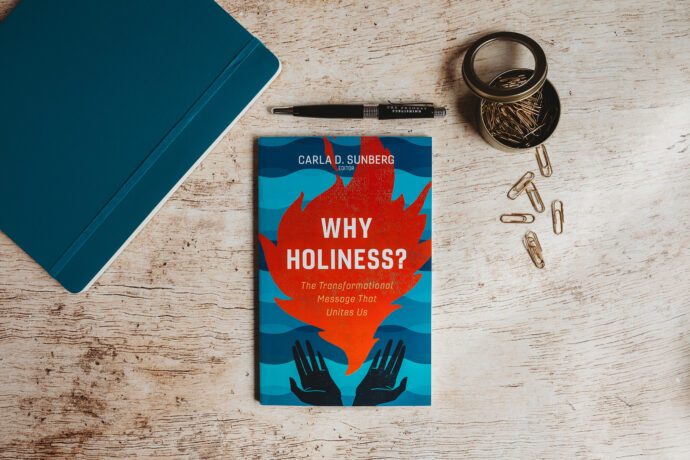The following in an excerpt from the introduction of The Foundry’s new release, Why Holiness?
A couple of years ago I read a book by Simon Sinek called Start with Why, which is a secular book that doesn’t speak about the church yet is extremely relevant. Every day, organizations spend time and energy on doing their business. Much of the time the emphasis is on the what (what it is that they do) and the how (how it is that the work gets done). I’m sure the church has provided us with similar experiences as we have attended numerous workshops and seminars that tell us what we ought to be doing and how we should get it done. This may relate to our personal spiritual lives or to the work of the church at large. I would argue that we have been inundated with the what and the how and that we may have grown weary along the way.
Simon Sinek suggests that every great organization starts with why. Those who know why they do what they do find it much easier to develop their what and their how. For great organizations, the focus is always on the why, and most every member of a great organization can tell you their why. John Wesley and Phineas F. Bresee both knew their why: to preach scriptural holiness. Preaching scriptural holiness was at the very core of the Methodist movement and the birth of the Church of the Nazarene. These people passionately understood the why of everything they did. Every activity, every ministry, every what, and every how was completed in light of their why, which was holiness.
About a generation ago, I believe we became confused about our why. We began arguing about categories and whether we were American Holiness or Wesleyan. Was holiness about purity and following a set of rules, or was it about love? Somehow we thought we had to choose one or the other. In our disagreements, something got lost. Instead of wrestling with our why and allowing it to remain our driving force, it became easier to teach about the what and the how. We established conferences to teach the latest techniques when it came to the attractional church, building a Sunday school, or how to facilitate small groups. We became obsessed with style of worship and whether (and how often) to celebrate the Lord’s Supper. Somewhere along the way, we may have forgotten about asking why.
Then I experienced my “aha” moment: the discovery that holiness isn’t some option for those who want to be superChristians; rather, holiness is God’s intention for all. Holiness is at the core of everything that is God and is revealed in Christ.
I didn’t attend seminary until I was nearly forty. By the time I was able to go and sit in classes, I was hungry to learn more about this church of which I had been a part since my birth. Day after day, whether in class or soaking up the reading assignments, I was enlightened about our understanding of holiness. I will never forget studying the Trinity in my systematic theology course and, there, finding a God of love existing in holy fellowship—to which I was invited. It was an overwhelming thought that only continued to build as I discovered that Christ’s incarnation created a pathway for humanity to be restored in the image of God. Here was God’s idea all along—that all of humanity would be holy, just as God is holy. Then I experienced my “aha” moment: the discovery that holiness isn’t some option for those who want to be superChristians; rather, holiness is God’s intention for all. Holiness is at the core of everything that is God and is revealed in Christ. Suddenly I wasn’t just in the church because I had been born into it. Instead, this was a theology that resonated deep in my heart and soul. Our message of holiness satisfied my own spiritual hunger.
 Dr. Carla Sunberg, along with an international group of gifted theologians explore how practices like intentional spiritual formation, engaging persons on the margins, and dialoguing with the past help us answer the question of why holiness remains essential to the life and health of the church. You can order a copy of Why Holiness? here.
Dr. Carla Sunberg, along with an international group of gifted theologians explore how practices like intentional spiritual formation, engaging persons on the margins, and dialoguing with the past help us answer the question of why holiness remains essential to the life and health of the church. You can order a copy of Why Holiness? here.





0 Comments